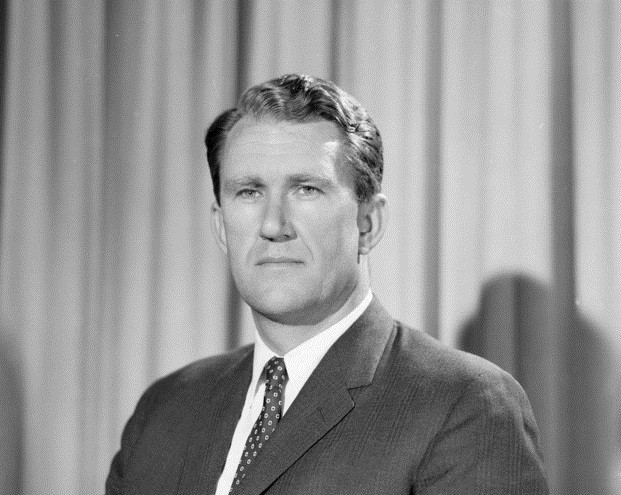 Malcolm Fraser was the last Australian Prime Minister who thought the Commonwealth could be a major instrument of Australian foreign policy.
Malcolm Fraser was the last Australian Prime Minister who thought the Commonwealth could be a major instrument of Australian foreign policy.
Some of Fraser’s successors—Hawke, Howard and even Gillard—believed the Commonwealth could do useful work and gave it appropriate attention as a second- or third-tier multilateral priority.
Fraser, by contrast, was the last Oz leader to put the Commonwealth in the top rank of Australian foreign policy concerns. He pushed hard to shift and reshape the Commonwealth to relate it directly to Australia’s regional interests and middle power role.
The previous column discussed the four pillars of Fraser foreign policy:
- The Western alliance
- Regionalism
- The Commonwealth
- Strengthening relations with middle-sized powers
As one of Fraser’s ‘four essential components of our foreign policy’, the Commonwealth is the anachronism in the list. The significant point is that this third pillar reflected the limited foreign policy options available then, not the power of the Commonwealth.
Fraser as the last Oz PM who was a convinced Commonwealth man differs markedly from earlier versions of the breed. He wasn’t an Australian Briton in the manner that was natural to Deakin or Bruce or Menzies. Going to Oxford taught Fraser to think and brought him to intellectual adulthood; one of the lessons was the difference between Britain and Australia and where he could be at home.
Fraser didn’t embrace the Commonwealth for heritage or history. He wanted to put it to work to serve Australian interests. The Commonwealth would be the bridge or the device to meld points two and four of his essentials: regionalism and Australian middle power aspirations.
In 1980 Fraser said he was ‘extremely active’ in the Commonwealth because he ‘rejected absolutely the views that it could only be a talking shop or that it was merely an interesting anachronism on the world stage… we have proceeded on the assumption that it is an instrument which can be used to solve problems and that it can be particularly useful in situations where great powers are reluctant or unable to act.
The Cold War warrior longed to be unshackled. His vision was of a non-aligned Commonwealth that was brave, vocal and effective on the world stage; and—not incidentally—had Malcolm Fraser in the lead.
Fraser’s ambition saw two regional meetings of the Commonwealth convened: in Sydney in 1978 (remembered for the Hilton hotel bombing) and New Delhi in 1980. As Fraser said, the purpose was to have regional summits to bring together Australia’s ‘large scale region’, extending from ‘the sub-continent to our north west to the islands of the South Pacific.’
If Fraser’s pattern had endured, there’d be a full Commonwealth summit every year where Africa and African leaders dominated the agenda, and in the alternate year a Commonwealth regional or Asia–Pacific summit, absent the Africans.
After that second regional meeting in India, Fraser told Parliament on 11 September 1980:
‘These meetings came about as the result of an Australian initiative. After the success of the New Delhi meeting I think it is clear that this has been one of the most useful foreign policy initiatives ever undertaken by Australia. It links together and integrates two of our most important concerns: the region and the Commonwealth.’
At the moment Fraser was talking up this ‘most useful’ foreign policy idea, he was actually marking its last specific expression. After New Delhi, the Commonwealth regional summit didn’t reconvene. When Fraser left, so did the champion for a special Asia–Pacific role for the Commonwealth. In Fraser’s memoirs, the Commonwealth Secretary-General, Sonny Ramphal, is described as unenthusiastic, fearing ‘regional meetings would result in power blocs, detracting from Commonwealth unity.’
In retirement, Fraser reached one last time to see what sort of instrument he could make the Commonwealth, campaigning for 18 months to be elected to become Commonwealth secretary-general to follow Ramphal.
Backed by his successor as PM, Bob Hawke, Fraser toured the Commonwealth pledging that he’d put new force and energy into running the organisation. That campaign promise was honed by Margaret Thatcher as the perfect weapon to prevent Fraser’s election, when Commonwealth leaders voted on the job in Kuala Lumpur in 1989. The British Prime Minister’s killer line was an accurate rendering of Fraser’s character versus the comfort levels of the club that is the Commonwealth. ‘You realise,’ Thatcher warned, ‘if Malcolm gets in, he’ll want to do things!’ Exit Malcolm.
Tamie Fraser was an unlikely Thatcher ally in opposing what she saw as her husband’s ‘bizarre’ quest for a post where he’d perform as a bureaucrat taking direction from leaders. Tamie knew her man—he gave orders, he didn’t take them. ‘Mind you,’ Mrs Fraser laughed, ‘if he’d got it he would have tried to make the Commonwealth a rival to the United Nations. He wouldn’t have been happy to moulder along with everyone having happy little meetings every couple of years.’
Come the 21st century, the Commonwealth as a pillar of Oz foreign policy crumbled to nothing, even for Fraser.
In his final big meditation on Australia’s place in the world, 2014’s Dangerous Allies, Fraser spent a lot of wordage on the development of the old British empire and what it meant for Oz. Writing about Australia after World War II, Fraser presented as an Evatt, not a Menzies, man: ‘Evatt believed in Australia as an independent nation acting entirely in our own interests. Menzies still tended to the view that we could exert the greatest influence when working through the Commonwealth and the Empire connection.’ And that’s where the book’s consideration of the ‘new’ Commonwealth ends.
What of the Malcolm Fraser who in 1980 saw the Commonwealth as one of the four essential components of Oz foreign policy? Nary a word.

